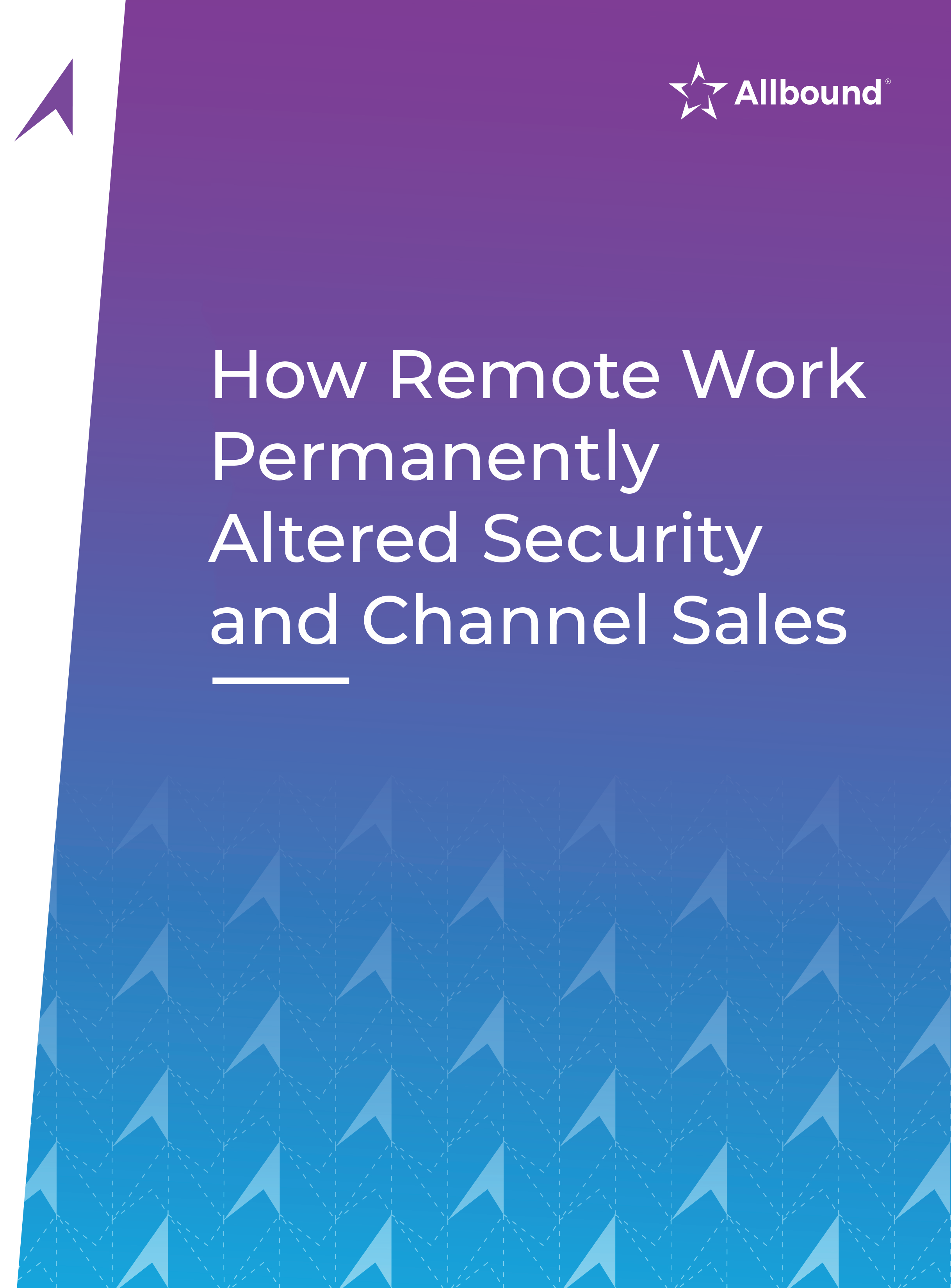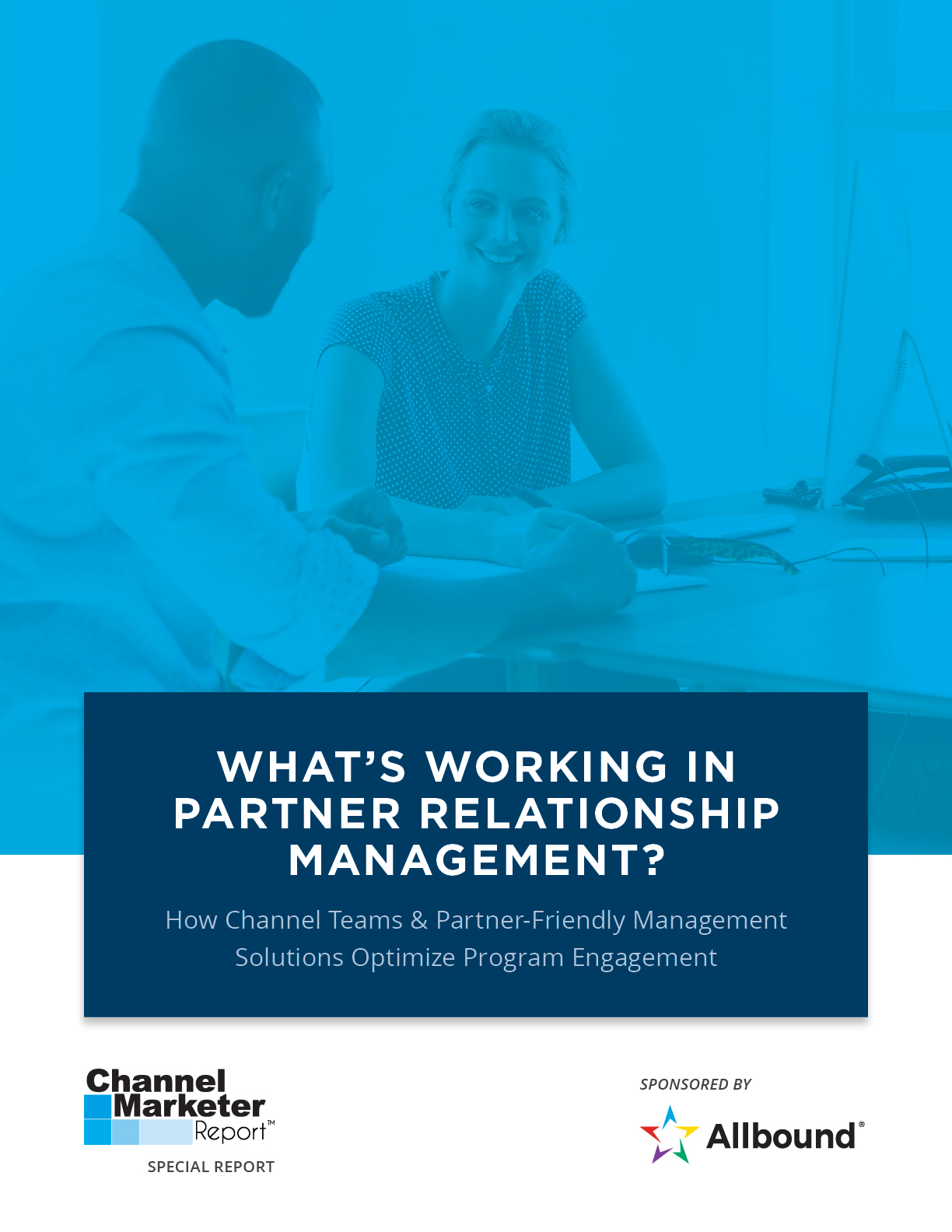Special Features
12 Ideas for Succeeding in a Mentoring Relationship

Theresa Caragol, founder and CEO Achieve Unite
By Theresa Caragol, founder and CEO, Achieve Unite, and Izzy Barry, director, M&A and PMOaaS, VMware Inc.
With US unemployment holding steady well-below 5%, and the number of job vacancies rising to an all-time high of 6.37 million in April, finding top-talent for channel management and marketing positions is tougher than ever.
That’s why it’s increasingly important to help young channel professionals develop their skills while reinforcing that channel careers promise to be even more exciting in this world of SAAS, Cloud, IOT and digital transformation.
What to do? At the recent 20th Anniversary National Channel Focus event hosted by long-time industry mentor, coach, and connector – Rod Baptie – mentoring and talent sponsorship emerged as a common theme during a number of roundtable discussions.

Izzy Barry, director, M&A and PMOaaS, VMware Inc.
In this article, Theresa Caragol, founder and CEO Achieve Unite, and Izzy Barry, director, M&A and PMOaas, VMware Inc., review many of the ideas shared there. They agree that companies and tenured industry folks can do a better job of growing their own talent and training junior industry staff.
Here’s how they believe companies can mentor the rising stars in their ranks to keep vital positions filled.
12 Ideas for Succeeding in a Mentoring Relationship
The discussion around Mentorship is not new – according to Wikipedia, the word itself was inspired by a character in Homer’s Odyssey – but the significance that has been put on the cultivation of mentors and mentees presents a great opportunity for professionals of all levels in today’s world.
Today, more than ever people need to have trusted sources for guidance and advice. It’s an imperative in a complex, global business world that is under rapid transformation because of the digital economy.
Rod Baptie and the Baptie Team, along with a core group of industry channel leaders including myself, sponsored for the fifth year in a row, the Women’s Leadership Council. This is a forum for people to come together and discuss this complex changing landscape. During the Mentoring Roundtable, we uncovered a set of 12 Mentoring Ideas for Success. Along with Izzy Barry, director, M&A, and PMOaaS, VMWare, we have assembled this list of mentoring ideas from the amazing group of women at our table from across vendors, suppliers, service providers, and regions.
As we reflect on our careers, we unanimously agreed that pivotal decisions were guided by our most trusted mentors. As I also reflect, some of my most rewarding career experiences have been associated with individuals I have had the honor of assisting in a small part with their career journey.
Whether you have formal programs in your company, or you are personally seeking a mentor or mentee; perhaps these 12 ideas can serve as a foundation for success.
- Be upfront in the first or second interaction with a mentor/mentee.
It’s important for both individuals to clarify their roles. Sample conversation questions include:
- What role would you like me to play?
- What do you want to take away from this partnership?
- How do we each define success?
- A mentor is an advisor and a trusted source for candid and open conversation.
It’s important to establish ground rules and shared expectations of confidence, honesty, and the interactions to create a safe space for you both to interact. These efforts will form the basis of trust, which allows for vulnerability and honesty, both of which are required for real learning to take place.
- If you are volunteering for an informal or formal program as a mentor, be generous with your time.
The greatest potential for failure to launch is lack of availability, or failure to get started early. Help the mentee understand how they can best avail your time. Address simple guardrails early and set clear expectations for scheduling mentor/mentee discussions logistics. This will establish clarity and consistency for both mentor and mentee throughout the lifecycle of the exchange.
- As a mentee, it’s extremely important that you take advantage of the time offered to you.
Be proactive and ask how you can help make the process go more smoothly. The level of energy and the enthusiasm you bring will demonstrate to a mentor your commitment. Mentors are often more willing to invest and help a mentee when they see a high level of commitment and energy getting put into the engagement.
- Build rapport very early in the engagement.
Good chemistry is an imperative – but chemistry evolves as the relationship grows. Ways to build rapport include:
- Mentor and Mentee each share their career journey – high points and challenges
- Sharing your professional history, divulging ups and downs, helps humanize both parties, and build empathy and understanding.
- Where there is discomfort, don’t run – stay curious and use it as an opportunity to learn more about the individual.
- As a mentee, you can share a very difficult experience either that you went through and resolved or that you are in and could use assistance with.
- Embrace deep collaboration and reciprocity.
That means that it’s important for both parties to understand how each person can assist the other person. Mentor and mentee relationships are not one way – it’s important for both parties to explore how they might assist the other person in his/her business. Questions to ask include?
- What are your goals?
- How can I best support you professionally? Personally?
- What are your personal interests?
- What’s important to you?
- Any big opportunities or needs you have?
- Leverage video chat.
If you can’t be together face to face, leverage collaboration tools like video. Video elevates the collaboration factor exponentially over email and phone.
- Embrace the development discussion and use strength and intelligence assessments.
Three tools I really like are Strength Finders, Emotional Intelligence and Meyers Briggs. All of them get underneath an individual’s strengths, blind spots and areas for growth, and they help the person increase self-awareness. They can then form a basis for further conversation around the key areas of focus.
- Mentor and mentee relationships happen at different times and last for different durations.
Consider diversity in all its shapes and forms. Explore having some mentor/mentee relationships be from a different part of the world, gender, different background and age. Mentors studies are clear – greater diversity in thinking can help companies achieve over 30% more in terms of productivity (Deloitte 2017 Diversity Study.)
- Take mentoring as your personal responsibility; don’t wait for the formal or informal program.
Where you see talent, as either a mentors or mentee, cultivate spontaneous connections. Start small. Ask a question. Ask for an opinion. Ask for help. Rapport can be built in many ways, and often those organic or informal connections that can yield as much success as formal programs.
- Take breaks from the relationship when necessary.
Sometimes, workload, travel, and life gets in the way and commitments need to shift gears. Taking a break can help re-vitalize a mentor – mentee relationship in many ways. In fact, it may be a welcome opportunity that offers the mentee time to apply anything he/she has learned.
- When a relationship is genuinely lacking in chemistry or is not the right fit, don’t be afraid to discuss it openly.
Look for the opportunity for redirection. Mentors could put you in contact with a peer if a successful cadence or comfortable exchange of ideas cannot be established. Taking this approach ensures a positive outcome for both parties in what otherwise could be a difficult situation
Mentoring is a privilege. For both individuals involved. In a world of hyper connectivity, building real and genuine connections has never been more challenging. Whether you are selected to participate in a formal program, inspired to invest time in young talent, or are lucky enough to learn from an expert in your field, it’s important to be open to all approaches, and be single minded about making it a priority.
These important relationships may be the catalyst for your career, or your life-long legacy.
Theresa Caragol is an accomplished channel chief, consultant, speaker and author. She helps enterprises accelerate revenue growth by transforming their indirect channel and strategic alliance programs.









